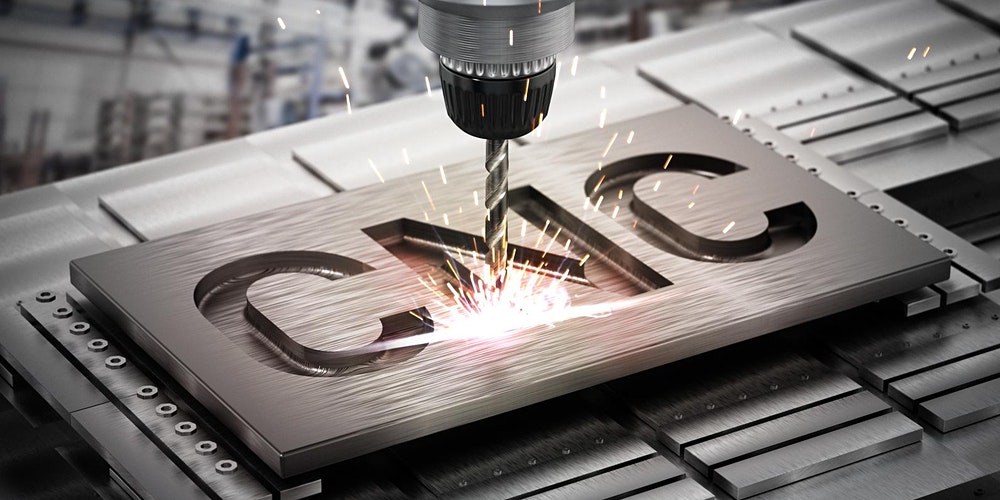Computer-Numerical Control or CNC is an automated manufacturing process controlled by computer software. The software controls the manufacturing tools and machinery for the precise and efficient manufacturing of various important parts, used all over the world in every industry from agriculture to the military.
The US Air Force was the first-ever use of the CNC machining process, way back in the 1940s. Looking at the various advantages, every major manufacturing industry quickly switched from manual machining to automated CNC machining. It all started from a punched-paper design, and now the CNC machining has its own computer language, for a much-improved and easier usage, known as the G-Code.
Instead of having to employ inexperienced manual labor to prepare complex parts, a CNC manufacturing company uses software, super-computers, and high-tech CNC machinery to prepare those parts with much more precision and accuracy. It removes the human error factor from the manufacturing process.
Take an example of a factory the manufactures small parts for an automobile brand. Using CNC machining instead of the manual machining process will save time and money and ensure better quality manufacturing of those small parts. There will be fewer faulty parts because a machine can do a repetitive and boring task with more efficiency than a human does.
Here are a few other advantages of using CNC manufacturing instead of going for manual machining.
Pinpoint Accuracy Consistency
The biggest advantage of CNC machining is the pinpoint accuracy and consistency in the manufacturing of small and complex parts. Whether you want to turn, mill, or bore any small or large part of whatever machinery, the CNC machines will accurately follow the CAD design bringing an accuracy down to 1/1000th and removing the human error. No matter how experienced a human gets, they can never achieve this level of accuracy and consistency.
Faster Production
Manual labor cannot work around the clock. They need to take several breaks during the day, which slows down the production speed. During night shifts, the production capacities are not the same as those during the day shift. On the other hand, the CNC machines can work 24 hours a day, 7 days a week, without breaks. These machines will only stop if they require some repairs or maintenance.
Faster production rates mean satisfied customers, and satisfied customers mean more business.
Lower Cost
One great advantage for both the business and the client is the lower cost. Yes, installing the CNC machines is a bit costly, but it is a long-term investment that helps the business save a lot in the future. Instead of having to employ a large labor force, the company can bring in CNC machines. The machine can handle the work of about FIVE laborers. With a CNC machine, all you will need is a single machinist that can run, maintain, and repair the CNC machine.
With less labor cost, the business will lower the manufacturing prices as well. So, the modernization of the manufacturing process is beneficial to both the manufacturers as well as the consumers.
Labor Safety
CNC machines also ensure labor safety as they keep the workforce away from sharp and dangerous tools. The most a machinist will do is to replace the cutting tools and occasionally repair the machine if it faces any problems. As for the manufacturing, the machinists usually control the machines from a safe distance. The labor no longer has to deal with lathes, drills, and punches, and other dangerous tools.

